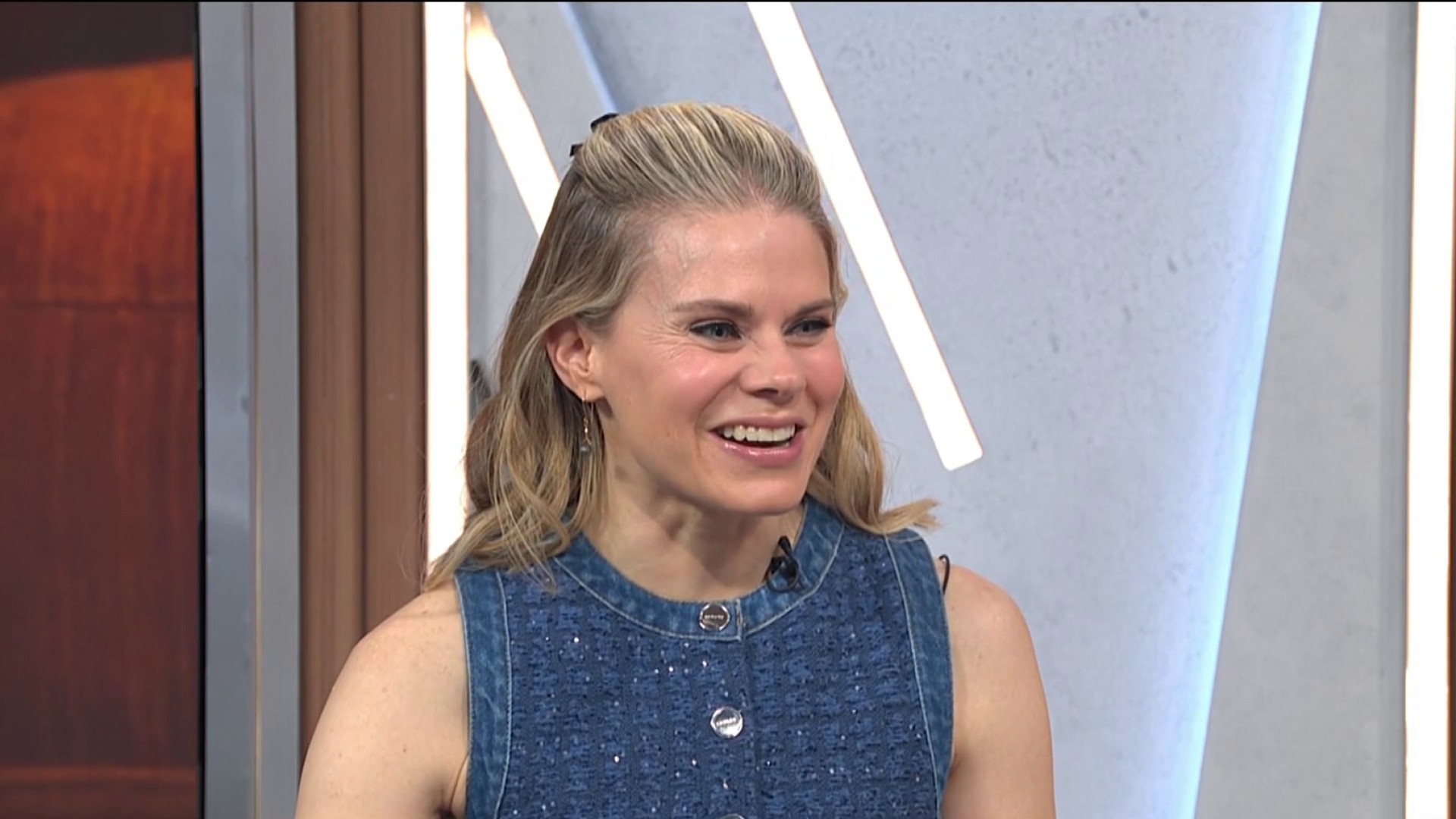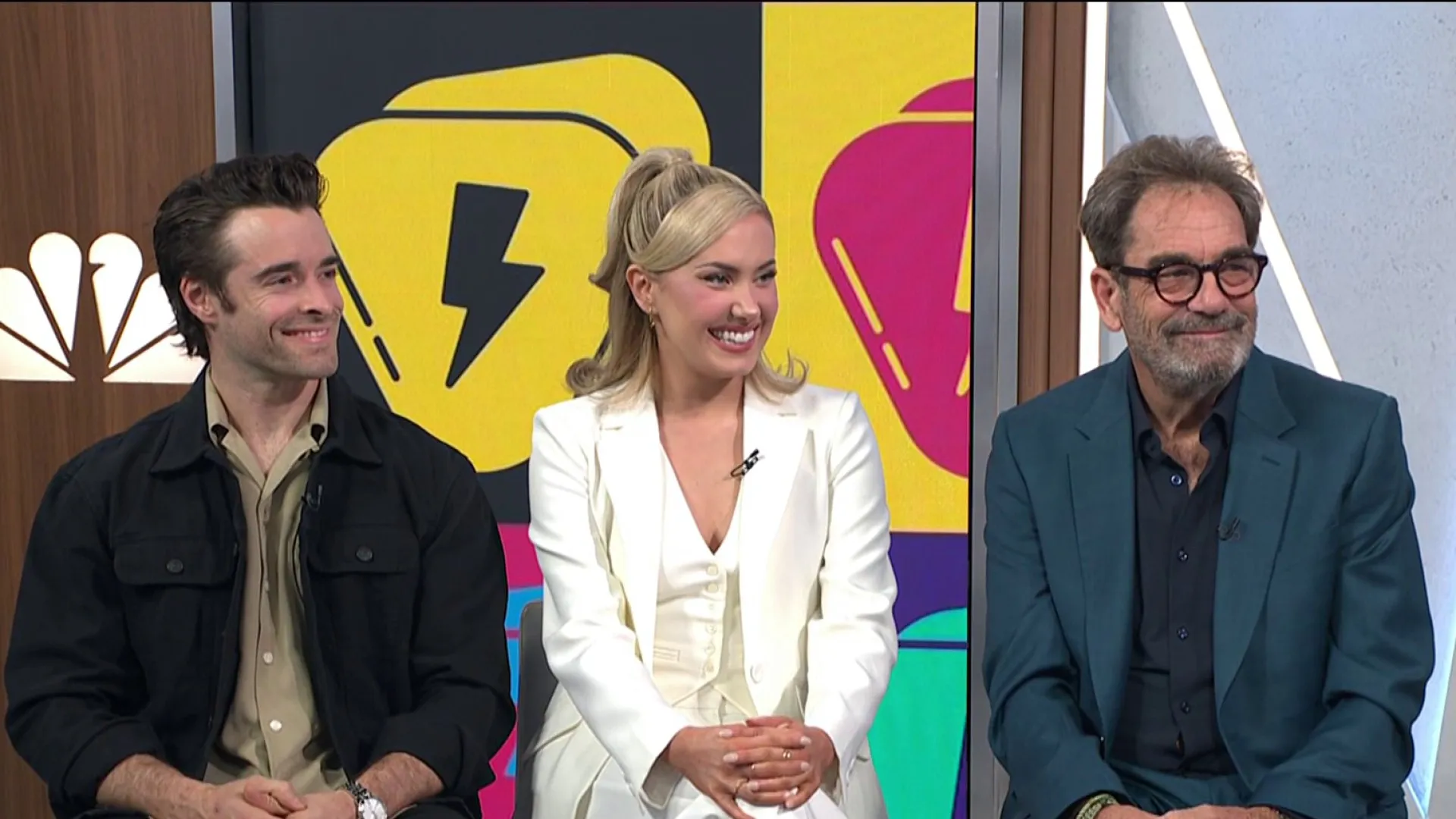In “A Parallelogram,” Celia Keenan-Bolger is Bee, a drugstore chain manager who has just begun co-habitating with Jay, a heart-on-his-sleeve, over-privileged white guy who has ditched his wife and kids for -- let’s call it what it is—a trophy girlfriend.
Unknown to Jay, and only slightly clearer to Bee, there’s a third person living with them: That’s Bee 2, 3 or 4, an older woman so named by playwright Bruce Norris depending on where in the two-act play we find ourselves: Bees 2, 3 and 4 are older, wiser versions of Keenan-Bolger’s character … but with a smoking habit.
Seasoned with a gleeful dash of sadism by veteran entertainer Anita Gillette (“Chapter Two,” etc.), the older Bees own a dangerous remote control that can be used to rewind or fast forward to pivotal events in younger Bee’s life. Given all this, Keenan-Bolger has to make a choice: Relive certain moments, to try making them better … or let them slide into history.
Well, I know what I'd do: Let’s grab that remote and put it through her paces! (Willy Wonka would've hated me.)
“A Parallelogram,” which three-time Tony nominee Keenan-Bolger has colorfully deemed a cross between “Our Town” and “Black Mirror,” premiered at Chicago’s Steppenwolf Theatre in 2010. The next year, Norris’s “Clybourne Park” would win a Pulitzer Prize for Drama, and then win the Tony for top play after that.
You can see the ideas of class and status explored in “Clybourne Park” percolating in this earlier existential comedy, with its title that suggests the shape of experience: If something happened in the past, it could be happening again, in parallel, in the present. Events, naturally, aren’t always unfolding in a linear fashion.
As the play opens, Jay has employed a sinewy, business-savvy Latino (Juan Castano) to mow the lawn for $50. We can see where this is going from a mile away, but it’s still fun to watch the character (Stephen Kunken, of “Enron”) hem and haw over whether the fellow deserves a $10 tip ... it's the wrong thing to be fretting about.
Broadway
Birds -- both a parrot, that Bee had a painful experience with as a child, and a finch, which provides a pleasant memory for Jay -- play into the proceedings, as does, uh, a virus that threatens to wipe out humanity.
We spend much of the second act in a hospital, where a gathering of fine minds tries to decide whether Bee’s disposition is merely her personality, or the result of that sinister disease going around: “What’s the name of that cheese?” ponders Bee 2, who has joined us in a doctor’s coat for this particular exchange.
“The one with the teeny little holes. Is it Lorraine? ... That’s what your brain starts to look like.”
Someone in this room is sick as a parrot, but we leave never figuring out quite whom. And anyway, I’ve omitted a couple of key details.
First, though Bee can always see her older self, the older woman has the power to become invisible whenever Jay’s around. And while the older woman can share with Bee her knowledge of past and future events, and let her relive them, there’s nothing young Bee can do to alter their outcomes.
And that’s how “A Parallelogram” finally takes shape.
Though young Bee can’t change the inevitable, she can tweak the tenor of the exchange leading up to it, making a hostile exchange less so, for example. Put another way, in a situation where someone’s going to get hurt, they’re still going to get hurt … but there’s a difference between schadenfreude and empathy, and we do -- all of us -- have control over the vibes we’re giving off.
“Dear Evan Hansen” director Michael Greif allows Norris’s misanthropy to creep slowly into the proceedings, like smoke from the older Bee’s Marlboro’s. “A Parallelogram” is a dark piece that argues we’re unlikely to emerge from the primordial muck of our own creation. That said, I’d gladly grab that remote control if it, by chance, could provide gentler conclusions to some of the more abrasive endings in my own life.
“A Parallelogram,” through Aug. 20 at Second Stage’s Tony Kiser Theater, 305 W. 43rd St. Tickets $66-$109. Call 212-246-4422.
Follow Robert Kahn on Twitter@RobertKahn



